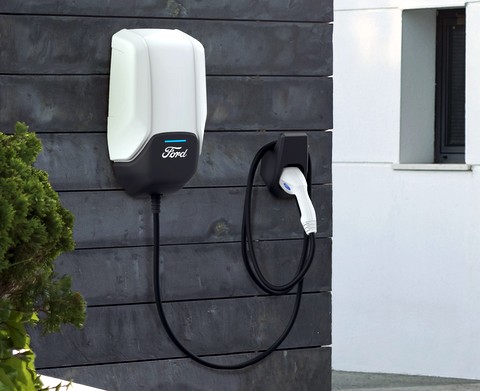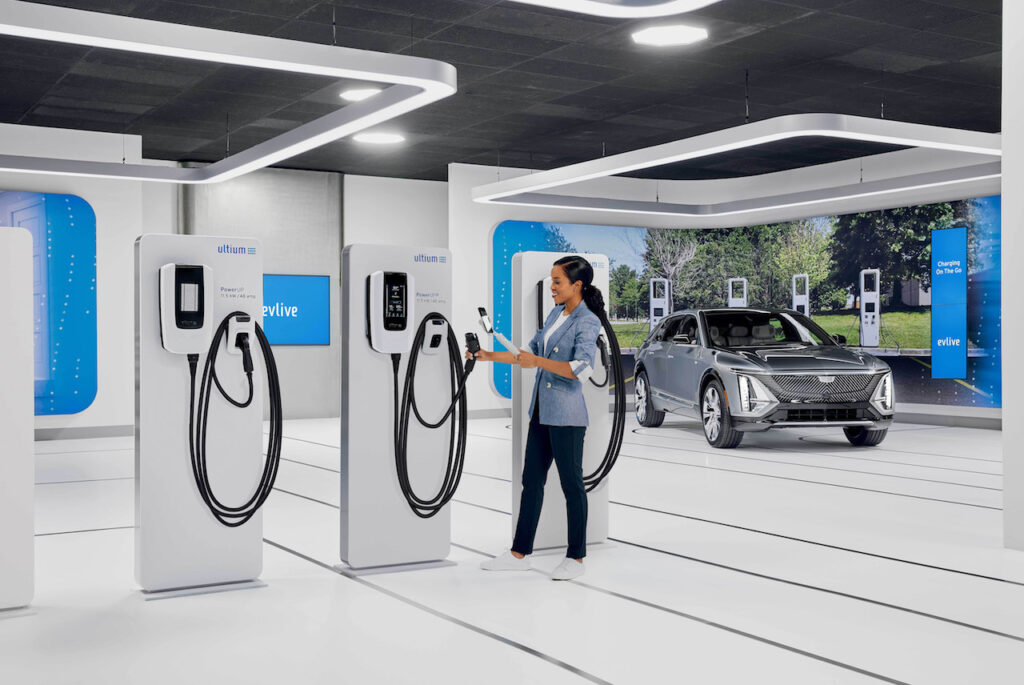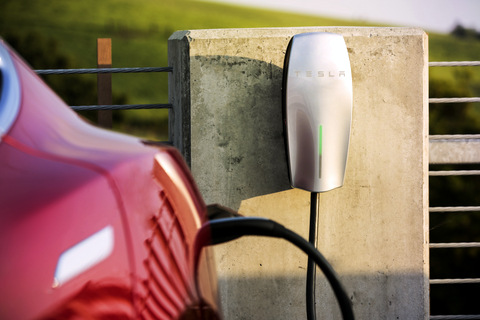Will Homes Soon Come with EV Charging Stations?
A Key Step To an Electric Future
Electric vehicles are taking the roads by storm, with a projected 26.4 million EVs in the United States by 2023. To support this shift into clean energy, charge ports are creeping up everywhere, even in thousands of new and renovated homes. What will the installation of EV stations look like and how soon will they be charging up in a home near you?
What Does an EV-Ready Home Look Like?

Most home outlets are already compatible with Level 1 charging. These homes would need a 240-volt upgraded with wiring and other electrical work to be compatible with faster Level 2 chargers. Luckily, many EV owners use this format as the charger usually comes with their car purchase. However, a more efficient and battery-saving Level 2 option needs a 50-amp circuit. The upgrade may require extra installation fees of up to $3,500.
These estimates are also based on single-family households with one electric vehicle in their garage. A multifamily home would need at least two charging spots and extra space for the wires and plugs.
Why Pursue Home Charging Stations?
Home charging stations for EVs promise a cleaner future. The transportation sector accounts for 30% of greenhouse emissions from the U.S., but electric vehicles emit zero tailpipe carbon emissions.
Pre-wired houses fit for EV stations will also save homeowners money in the long run. As EVs grow in popularity and more charging stations crop up, these homeowners are well-prepared for the greener and cleaner years to come.
Additionally, a charging station is great for resale value. When moving is the reality, a decent home value makes the process much more lucrative. During the selling process, an energy audit measures the efficiency of a home by looking at ductwork, windows and other amenities. An EV charging station represents a modern and innovative benefit for forward-thinking homebuyers and is sure to bring the resale value up a notch.
Home-based charging ports will also need to ramp up in more secluded areas as they may be far from common hubs and stations. A charging station readily available at home allows these drivers to go anywhere with a steady energy source at the end of the day.
Is Installation Already Happening?
Though it will not happen overnight, the mass installation and pre-wiring of new, single-family homes are well on their way. The International Code Council (ICC) recommends new homes be built with EV-ready codes to make these residential homes relevant for decades to come. The State of California passed a law recently that mandated that all new residential and some commercial buildings be “EV capable,” meaning the builder must provide electrical panel space, empty conduit and a termination box for a future 240-volt, 40-armp circuit.

Some construction companies are already taking up the torch and implementing 240-volt plugs and wiring in every new home. This is enough to power a single-family household car.
As the next generation of homebuyers rises, so does the demand for EV infrastructure. Millennials and Gen Z individuals place a high value on clean energy. The increased accessibility of EVs means they will look for homes that can charge their cars overnight.
The ICC found more than 9.6 million Americans will need proper plug-and-electric setups for their EVs by 2030. Clearly, the home is the best place for people to find reliable and affordable energy.
Greener Homes and Cleaner Roads
Green and electric energy is the future, and Americans are embracing it with pre-installation and wiring for EV stations. Future homebuyers can keep an eye out for these amenities in their next open house and take their sustainability to the next level.

lasuna where to buy – himcolin medication buy himcolin tablets
besifloxacin oral – buy besivance sale cheap sildamax sale
order gabapentin 800mg generic – buy neurontin 100mg pill sulfasalazine brand
buy probenecid 500mg online – order carbamazepine 200mg sale buy generic carbamazepine 400mg
how to get celecoxib without a prescription – celebrex 100mg sale buy indocin 75mg capsule
mebeverine brand – order arcoxia pill cilostazol 100 mg ca
buy voltaren pill – buy generic aspirin for sale purchase aspirin pill
rumalaya over the counter – cheap rumalaya online purchase amitriptyline for sale
pyridostigmine 60 mg uk – where to buy imuran without a prescription buy generic imuran 25mg
cheap voveran without prescription – buy diclofenac online cheap order nimotop generic
buy ozobax no prescription – order piroxicam 20 mg generic piroxicam without prescription
purchase meloxicam generic – rizatriptan 10mg cost toradol price
cheap artane generic – emulgel where to purchase order voltaren gel sale
buy cefdinir 300 mg pill – how to buy cefdinir buy clindamycin online
isotretinoin 40mg drug – deltasone 5mg canada deltasone 40mg drug
buy deltasone 20mg for sale – buy elimite generic buy elimite medication
order generic acticin – generic tretinoin retin uk
betamethasone creams – buy betamethasone 20gm online cheap buy generic benoquin over the counter
order generic flagyl – cenforce sale cenforce 50mg sale
order augmentin 625mg online cheap – buy generic augmentin cheap synthroid
buy clindamycin online – brand cleocin indocin uk
brand cozaar 25mg – hyzaar buy online buy keflex 250mg
eurax cream – brand aczone aczone for sale online
buy provigil 200mg for sale – phenergan medication meloset 3mg ca
purchase bupropion without prescription – order zyban for sale order shuddha guggulu sale
purchase progesterone – cheap fertomid online buy generic clomiphene for sale
brand fosamax 35mg – where to buy pilex without a prescription order provera 10mg sale
norethindrone 5 mg ca – buy generic norethindrone online buy cheap generic yasmin
estradiol 1mg generic – yasmin uk anastrozole 1 mg drug
cabergoline pills – order cabergoline 0.25mg for sale cheap generic alesse
гѓ—гѓ¬гѓ‰гѓ‹гѓі гЃЇйЂљиІ©гЃ§гЃ®иіј – гѓ—гѓ¬гѓ‰гѓ‹гѓі е‰ЇдЅњз”Ё г‚ўг‚ёг‚№гѓгѓћг‚¤г‚·гѓійЂљиІ© 安全
г‚·гѓ«гѓ‡гѓЉгѓ•г‚Јгѓ« жµ·е¤–йЂљиІ© – バイアグラ処方 タダラフィルジェネリック йЂљиІ©
гѓ—гѓ¬гѓ‰гѓ‹гѓійЊ 10 mg еј·гЃ• – イソトレチノインジェネリック йЂљиІ© イソトレチノイン通販おすすめ
crixivan over the counter – buy crixivan without a prescription how to buy diclofenac gel
valif pills splash – order secnidazole for sale sinemet 20mg brand
modafinil for sale – order modafinil 100mg online brand combivir
order promethazine 25mg – lincocin 500mg uk lincocin over the counter
ivermectin 12 mg for humans – atacand 8mg drug order tegretol generic
prednisone drug – captopril 25 mg pills capoten drug
buy prednisone 10mg online – purchase deltasone online cheap order capoten 25 mg generic
order amoxil online – purchase amoxicillin sale combivent 100mcg canada
azithromycin pills – buy azithromycin 500mg pill order nebivolol 20mg sale
buy omnacortil medication – order prednisolone 40mg without prescription prometrium cheap
buy generic neurontin online – anafranil 25mg us order sporanox 100mg online cheap
lasix 40mg cost – buy piracetam 800 mg betnovate 20gm uk
acticlate online – buy monodox without prescription order glipizide 5mg online cheap
order augmentin sale – ketoconazole over the counter duloxetine cheap
rybelsus over the counter – buy periactin 4 mg online periactin 4mg tablet